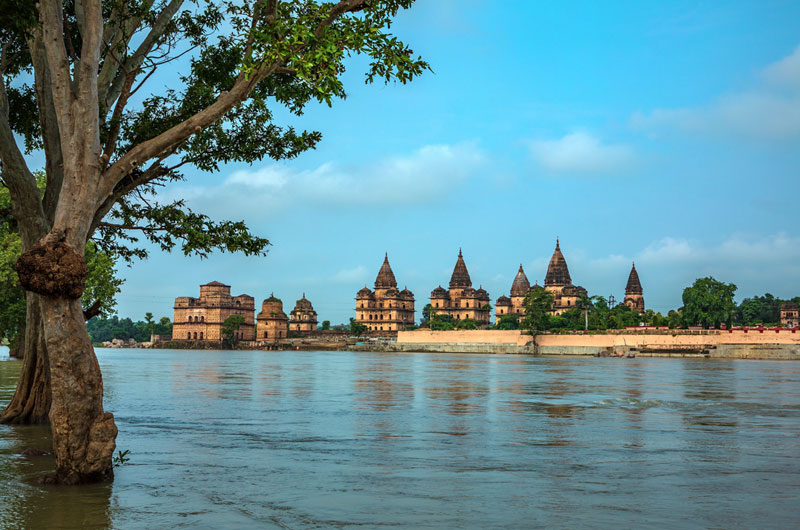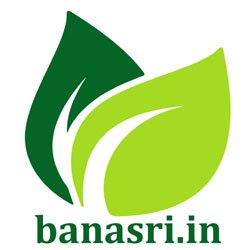
The Betwa River: A Vital Waterway of Central India
The Betwa River, a significant tributary of the Yamuna River, flows through the central Indian states of Madhya Pradesh and Uttar Pradesh. Originating from the Vindhya Range, the river winds its way through a region rich in historical and cultural heritage, offering a blend of natural beauty, historical landmarks, and vibrant local traditions. The Betwa River is not only crucial for irrigation and agriculture in the region but also serves as a key attraction for travelers and tourists. This guide delves into the river’s various aspects, including its tourism specialty, locality, nearby tourist spots, history, best time to visit, and practical travel information.
1. Overview of the Betwa River
1.1 Geographic Location and Course
- Origin: The Betwa River originates from the Vindhya Range in the state of Madhya Pradesh, India.
- Course: Flowing predominantly eastward, it travels through the districts of Raisen, Vidisha, and Sagar in Madhya Pradesh before entering Uttar Pradesh. It eventually merges with the Yamuna River near the town of Hamirpur.
- Length: The Betwa River spans approximately 590 kilometers (370 miles), making it a significant waterway in central India.
1.2 Importance and Significance
- Economic Impact: The river is vital for irrigation, supporting agriculture in the regions it flows through. It also plays a role in local water supply and provides a resource for rural communities.
- Environmental Impact: The Betwa River supports various ecosystems and wildlife, contributing to the ecological balance of the region.
2. Tourism Specialty
2.1 Scenic Beauty
- River Cruises and Boat Rides: The Betwa River offers serene boat rides, especially in the areas around historical sites and natural landscapes. These cruises provide a peaceful experience amidst picturesque surroundings.
- Natural Landscapes: The river’s course features a mix of rocky terrains, lush vegetation, and tranquil waters, ideal for nature photography and leisurely exploration.
2.2 Historical and Cultural Significance
- Ancient Temples and Monuments: The river is lined with several ancient temples and monuments that reflect the rich cultural and historical heritage of the region. These include architectural marvels and significant religious sites.
- Local Traditions: The Betwa River and its surroundings are steeped in local traditions and festivals, offering visitors a glimpse into the cultural life of central India.
2.3 Adventure and Activities
- Trekking and Hiking: The regions around the Betwa River, especially in areas with hilly terrains, offer opportunities for trekking and hiking. These activities allow travelers to explore the natural beauty and landscapes along the river.
- Wildlife Watching: While not as prominent as other rivers, the Betwa River area is home to various wildlife species, including birds and small mammals, making it a spot for wildlife enthusiasts.
3. Locality and Major Cities
3.1 Key Cities Along the Betwa
- Bhopal: The capital city of Madhya Pradesh, located near the river, is known for its historical landmarks, lakes, and vibrant culture.
- Vidisha: A historical city with ancient temples and archaeological sites, situated along the Betwa River.
- Hamirpur: A town in Uttar Pradesh where the Betwa River merges with the Yamuna, serving as a significant regional center.
3.2 Nearby Tourist Spots
- Bhopal:
- Upper Lake: A major attraction in Bhopal, known for its scenic beauty and recreational activities like boating and picnicking.
- Sanchi Stupa: A UNESCO World Heritage Site located near Bhopal, famous for its ancient Buddhist stupas and monastic complexes.
- Vidisha:
- Udayagiri Caves: Ancient rock-cut caves with intricate carvings, representing early Hindu and Jain art.
- Basin: A historic town with ancient temples and monuments along the Betwa River.
- Hamirpur:
- Raja Kheda Fort: A historic fort near Hamirpur, offering insights into the local history and architecture.
- Chaurasi Temple: An ancient temple complex known for its architectural significance and historical relevance.
4. History of the Betwa River
4.1 Ancient Significance
- Historical References: The Betwa River has been mentioned in various ancient texts and chronicles, indicating its importance in regional trade, agriculture, and religious practices.
- Mythological Connections: The river is associated with various local legends and myths, reflecting its cultural significance in ancient Indian traditions.
4.2 Medieval and Modern History
- Medieval Period: During the medieval period, the river played a crucial role in the region’s history, influencing local kingdoms and their economic activities. The temples and monuments along its banks were built during this time.
- Colonial Era and Post-Independence: In the colonial era, the river was important for irrigation and flood control projects. Post-independence, it has continued to support agriculture and local communities while also becoming a focus for conservation and tourism.
5. Best Time to Visit
5.1 Ideal Seasons
- Winter (November to February): The weather is cool and pleasant, making it the ideal time for exploring the river and its surroundings. This season is perfect for outdoor activities, sightseeing, and enjoying boat rides.
- Summer (March to June): Temperatures can be high, but early mornings and late evenings offer a more comfortable experience. The river’s flow may be reduced during this period, affecting water-based activities.
- Monsoon (July to October): The river experiences increased flow and can be prone to flooding during the monsoon season. While the lush greenery and dynamic river are attractive, travel might be challenging due to heavy rains.
5.2 Special Events
- Local Festivals: Various local festivals and cultural events are celebrated along the Betwa River, providing a chance to experience traditional music, dance, and rituals.
6. Nearby Restaurants and Hotels
6.1 Bhopal:
- Restaurants:
- The Lounge: Offers a range of Indian and international dishes in a stylish setting.
- Under the Mango Tree: Known for its traditional Indian cuisine and relaxed atmosphere.
- Hotels:
- Hotel Jehan Numa Palace: A luxurious hotel with elegant accommodations and excellent amenities.
- Hotel Lake View: Offers comfortable lodging with views of the Upper Lake.
- Budget Hotels:
- Hotel Ranjit: An affordable option with basic facilities and good service.
- Hotel Shree Krishna: Provides budget-friendly accommodations with essential amenities.
6.2 Vidisha:
- Restaurants:
- Vijay Restaurant: Offers traditional Indian dishes and local specialties.
- Kashmiri Restaurant: Known for its regional cuisine and casual dining environment.
- Hotels:
- Hotel Ashoka: Provides comfortable accommodations with modern amenities.
- Hotel Mayur: Offers good service and a convenient location.
- Budget Hotels:
- Hotel New Prakash: An economical option with basic facilities and decent service.
- Hotel Shyam: Offers affordable lodging with essential amenities.
6.3 Hamirpur:
- Restaurants:
- Local Dhabas: Various local eateries offer traditional Indian dishes and regional specialties.
- Hotel Restaurant: Provides simple and homely meals for travelers.
- Hotels:
- Hotel Raja Kheda: Offers basic accommodations with a focus on comfort and convenience.
- Hotel Kamal: Provides good service and a convenient location near key attractions.
- Budget Hotels:
- Hotel Ganesh: An affordable option with essential facilities and decent service.
- Hotel Sita: Offers budget-friendly lodging with basic amenities.
Conclusion
The Betwa River, with its historical, cultural, and natural significance, provides a unique destination for travelers exploring central India. From its picturesque landscapes and serene boat rides to its rich history and cultural heritage, the Betwa River offers diverse experiences for visitors. Whether you are interested in nature, history, or local traditions, the Betwa River promises a memorable and enriching journey through one of India’s vital waterways.
